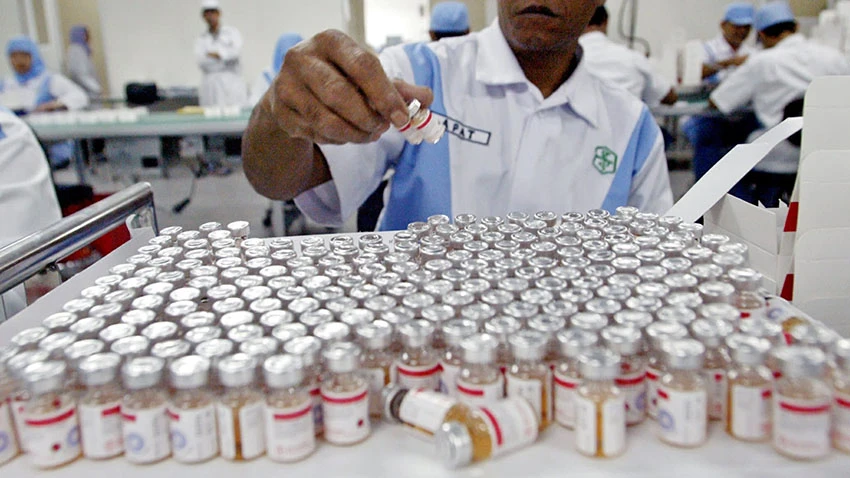
Developed countries have traditionally regarded Southeast Asia as a beneficiary of, not a contributor to, the international system because of the region's poor economic resilience and scarce material capabilities. Naturally, then, skeptics deem the region a lame duck in the global battle against COVID-19. The region is ready to prove them wrong.
Southeast Asia hosts two of the world's largest vaccine producers -- Indonesia and Thailand. Thailand is the region's leading candidate in the vaccine race: last month, it declared that its vaccine prototype had successfully produced antibodies in mice. The prototype will soon undergo human trials to see if a viable vaccine can be produced.
Closely trailing Thailand is the region's most populous nation, Indonesia. In early May, its Eijkman Institute for Molecular Biology completed three genome sequences of the coronavirus strain, which can speed up contact tracing. State-owned vaccine manufacturer Bio Farma has invited the Coalition for Epidemic Preparedness Innovation and a Chinese biopharmaceutical company to collaborate on this project.
 A doctor and nurses take care of a COVID-19 patient at King Chulalongkorn Memorial Hospital in Bangkok on Apr. 22. © Reuters
A doctor and nurses take care of a COVID-19 patient at King Chulalongkorn Memorial Hospital in Bangkok on Apr. 22. © Reuters Bio Farma is the largest vaccine manufacturer in Southeast Asia, capable of producing two billion doses annually, and in 2016 it exported two-thirds of the world's polio vaccines. Suppose Indonesia's COVID-19 initiative materializes: Bio Farma alone can cater for the entire region's vaccine demand.
Vietnam is another Southeast Asian country with remarkable vaccine self-sufficiency. The country had eradicated polio by 2000 and tetanus by 2005 through mass vaccination. In 2013, Vietnam's state-owned vaccine manufacturer mass-produced vaccines in just six months, using Japan-developed techniques, to contain a measles outbreak in the country, and three years later it became the fourth Asian country to manufacture a measles-rubella combined vaccine. With the MR vaccine, Vietnam was able to locally produce 11 out the 12 vaccines required for its Expanded Program for Immunization in 2017.
Vietnam's quick response to contain the spread of COVID-19, leaving it so far with no deaths, has won praise from the World Health Organization and the U.S. Centers for Disease Control. It is designing a human trial to test the efficacy of the BCG vaccine in preventing COVID-19 infections.
The ambitions of these countries to locally produce COVID-19 vaccines is natural, given their past exploitation by richer countries. Pharmaceutical companies in developed countries often acquire free viral samples which have been shared by poorer countries with the World Health Organization for free.
These companies then produce, patent and profit from the resulting vaccines without sharing the benefits with the donor country. In 2007, this led the Indonesian government to lock horns with an Australian company which had produced a bird flu vaccine using the Indonesian strain of H5N1. Indonesia even temporarily stopped sharing viral samples with the WHO.
Despite a resolution from the World Health Assembly, the WHO's governing body, richer countries have refused to hold up their end of the bargain. In 2009, they hoarded H1N1 vaccines, depriving poorer nations of equitable access to the cure. Southeast Asian countries realize that they must become self-reliant in vaccine production to survive.
These countries have not abandoned multilateral commitments altogether. Indonesia, Thailand, Malaysia and the Philippines are participating in the WHO's Solidarity Trial, a worldwide trial of four potential COVID-19 treatments. Malaysia has offered to become a research hub for other countries to conduct clinical trials on their vaccine candidates.
Richer countries ensure that collaborations with foreign companies serve their national interests. For example, Singapore's partnership with an American company to develop a COVID-19 vaccine guarantees its right to use the vaccine, while allowing the company to profit by marketing the vaccine worldwide.
However, the region's least developed countries such as Cambodia and Laos remain excluded from these developments. Some segments of their populations are vulnerable to vaccine-preventable diseases. For example, last year a sudden outbreak of H1N1 struck the indigenous hill tribes living in the northern provinces of Laos. Thailand stepped in by swiftly sending anti-influenza drugs to Laos.
In the present pandemic, Indonesia, Thailand and Vietnam have a moral obligation to assist their less privileged counterparts. For instance, they can involve Cambodia and Laos in clinical trials for their vaccine candidates.
More importantly, they must guide Cambodia and Laos to devise a feasible strategy prioritizing high-risk groups, like the Laotian hill tribes, for vaccination. A vaccine strategy is crucial because it is not the vaccine by itself that saves lives, rather the vaccination process.
No state stands alone in this battle. Southeast Asia's challenge is not just to come up with a vaccine -- but to ensure the whole region benefits from it.




















